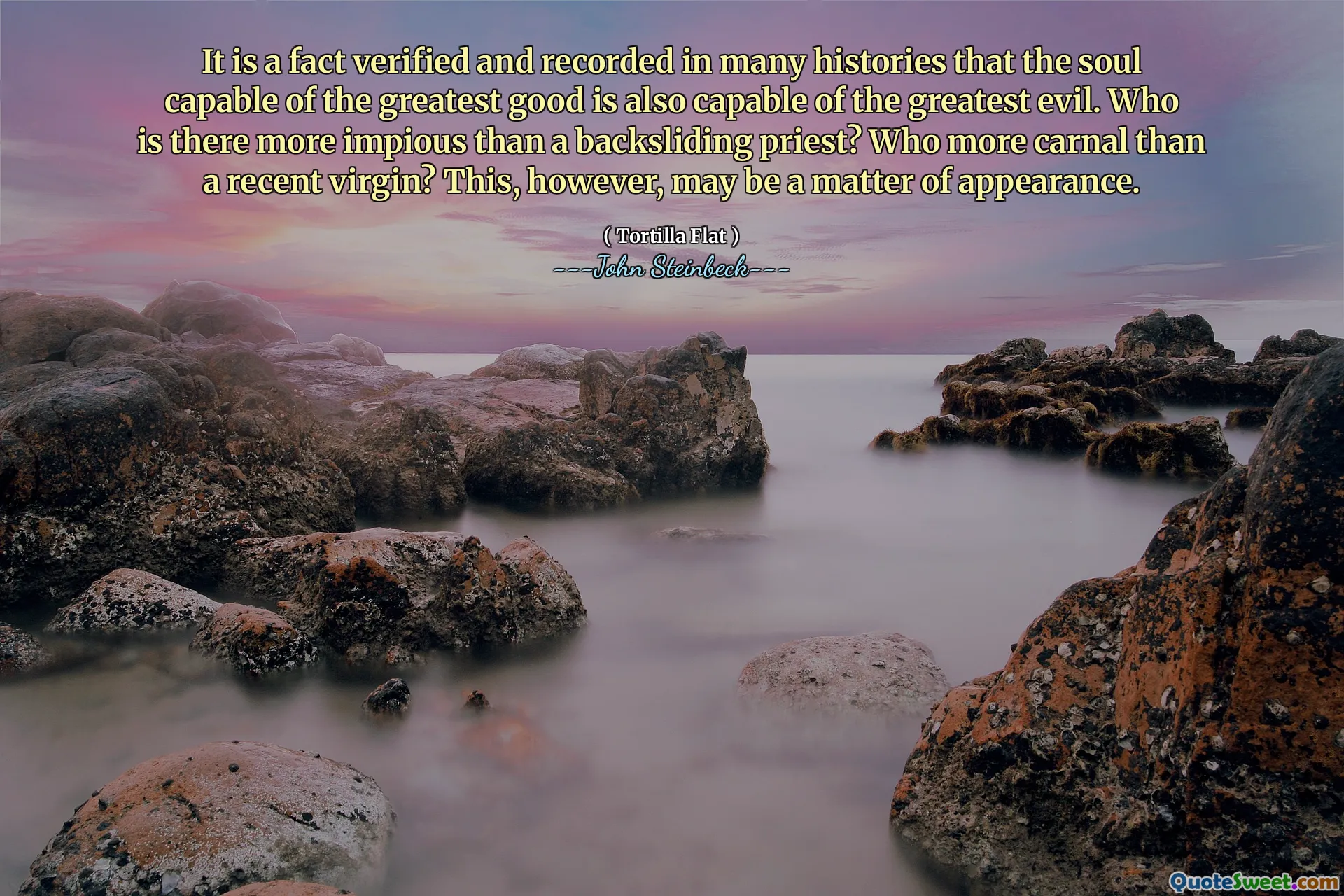
It is a fact verified and recorded in many histories that the soul capable of the greatest good is also capable of the greatest evil. Who is there more impious than a backsliding priest? Who more carnal than a recent virgin? This, however, may be a matter of appearance.
Throughout history and literature, the duality of human nature is a recurring theme, highlighting the complex interplay between virtue and vice within the same individual. The quote emphasizes that those capable of extraordinary good are equally susceptible to committing profound evil, illustrating the fragile boundary separating moral excellence from moral failure. This duality challenges the often simplistic view of human morality, prompting reflection on how context, temptation, and personal weakness can lead even the most upright individuals astray.
The mention of a backsliding priest underscores the potential for betrayal within positions of spiritual authority, reminding us that moral degradation is not exclusive to external enemies but can originate from those entrusted with moral guidance. Similarly, referencing a recent virgin exposes how innocence and naivety do not guarantee purity of soul, and temptation or desire can quickly corrupt the unprepared. These examples serve as stark reminders that outer appearances can deceive, and true morality is an internal state resistant to superficial judgments.
This observation encourages humility and self-awareness, acknowledging that anyone is vulnerable to moral failure regardless of their current standing. Recognizing this duality fosters compassion and caution; understanding that greatness in either direction—good or evil—is a part of human potential. The statement ultimately invites us to scrutinize not only others but ourselves, to remain vigilant in our moral pursuits, aware of our capacity for both righteous acts and missteps. While human nature is complex and layered, embracing this complexity can lead to a more honest and compassionate approach to moral judgment and personal growth.
---(Tortilla Flat)---John Steinbeck---





